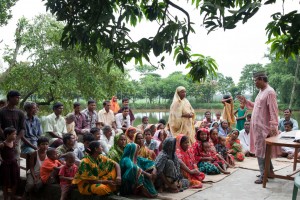Sunday (September Eight) was first International Literacy day. Twitter was alight with quotes about the power of reading, infographics, and uplifting stories, and it really got me thinking and wanting to learn more about literacy rates around the world.
In honor of International Literacy Day the United Nation Educational, Scientific, and Cultural Organization (UNESCO) published a study on literacy rates around the world. While the results show an overall improvement in literacy rates, there is still no doubt that the world has a long way to go within the specific field. Among the data, the most striking piece of information is that:
“…774 million adults (15 years and older) still cannot read or write – two-thirds of them (493 million) are women. Among youth, 123 million are illiterate of which 76 million are female. Even though the size of the global illiterate population is shrinking, the female proportion has remained virtually steady at 63% to 64%.”
There are many reasons why girls fall tragedy to illiteracy, but luckily many countries are continuing to work on tackling illiteracy in their citizens. Bangladesh is one of these countries. According to eh UNESCO report, Bangladesh has a literacy rate of 57% for adults and 78% for youth (under 15).
However, Bangladesh isn’t settling for these numbers. In 2010 Bangladesh set the goal of providing all citizens with the opportunity to receive a quality education. This had been achieved by increasing the national budget being spent on education, but also through the help of NGO’s and UK aid that helps to education adults – particularly women who were married off at a young aged and forced to stop their education.
Bangladesh is taking the goal so seriously that the Prime Minister running for reelection has pledged to bring the  country a hundred percent literacy rate if elected for a third term. The promise itself was a made at a rally held at an all girls school, and one of the top schools in the nation.
country a hundred percent literacy rate if elected for a third term. The promise itself was a made at a rally held at an all girls school, and one of the top schools in the nation.
Even when faced with difficult challenges, like helping to bring education to extremely poor families in rural areas, Bangladesh is doing it’s best to serve all of their citizens. For the last nine years Bangladesh has been running a program called Reaching out-of School Children to help combat illiteracy and lack of education within primary schools. . Yet, the program still misses many children and relies on NGO’s to help fund and support the program. Still, according to studies somewhere from 75-100 percent of children – depending on who you ask – are enrolled in schools in Bangladesh. The way I see it having seventy five percent of children enrolled in school is a still a great feat considering that in many countries the completion rate of primary school is much lower than that 75 percent.
To me, what is so amazing about Bangladesh is that the movement is coming from those in charge of the country and the communities. While they have help coming in from NGOs and other organizations, I believe that part of what has made Bangladesh successful so far is the fact that there are governmental institutions behind the movements. All too often we hear about countries that are unable to make real progress simply because the country is torn into two fractions.
While Bangladesh has come a long way on it’s own, there are still ways that you can get involved in helping the country come closer to it’s goal of literacy and education. The most noticeable of these ways is BRAC (formerly Bangladesh Rehabilitation Assistance Committee and Bangladesh Rural Advancement Committee). Having started as an NGO specific to Bangladesh and organization has now spread to over ten other countries yet still focuses heavily on aiding Bangladesh. Below is a video that features their innovate school boats that help rural children attend school.
Through BRAC you can donate money to help projects like this one and others, and help Bangladesh realize it’s goals of education and literacy and help inspire other nations.



1 pings